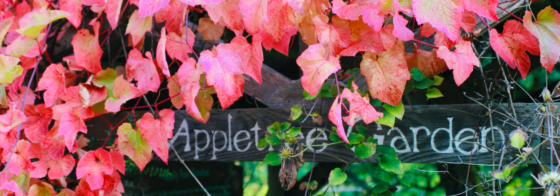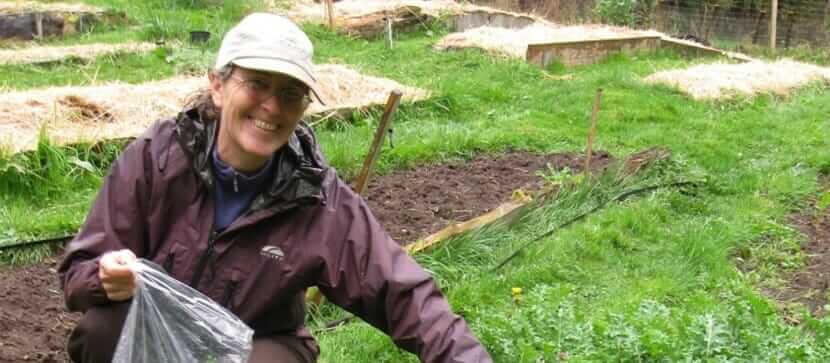Much of what the Whidbey Institute stands for is inspired by the Chinook Land, and the way this land holds and nurtures us informs all that we do. It’s only fair that we hold and nurture it, too . . . and that’s where Maggie Mahle comes in.
Maggie joined our team in the spring of 2013 as Land Care Coordinator, a role which marries many responsibilities: stewardship of the forests and trails; planning and cultivation in our gardens; working with our volunteers; teaching in our Service Learning programs. Maggie is uniquely qualified.
“I’ve done a lot of different things in my life,” she said, “and they’ve all culminated in this job.” She mentions everything from an interest in Waldorf education to experience in wilderness orientation leadership, and from social and organizational development to healing, herbalism, and massage therapy. From volunteering in hospice care to studying biodynamic agriculture. “All the work I’ve been doing has had a foundation of connecting with yourself, connecting with each other, and connecting with the Earth,” she said.
All of Maggie’s passions speak to a consistent quality: Maggie very deeply cares. The attention with which she nurtures, teaches, leads, heals, and senses plays into each of her responsibilities here, which include maintaining our landscaped spaces, caring for our educational garden, mentoring our garden apprentices as well as visiting students, and sensing into the health of the forest. In that capacity, she also works closely with staff from the Whidbey Camano Land Trust to care for our conservation lands, letting them know when something significant happens in this ecosystem and going to them for information when questions arise.
Maggie is a mother of two, and her son Dan Mahle is also on our team. “It’s wonderful,” she said, “working with him and witnessing him being fully engaged—loving where he is, and being able to use all of his gifts where his gifts are needed and wanted.” This powerful family team brings a special quality to our staff dynamic, as they bridge the outdoor and indoor realms of Chinook, helping create unity among the whole.
“How people have interacted with, responded to, cared for, and been cared for by the land has been formative at the Whidbey Institute,” Maggie said. “I am here to bring the land into the conversation in any and every way that I can.”


